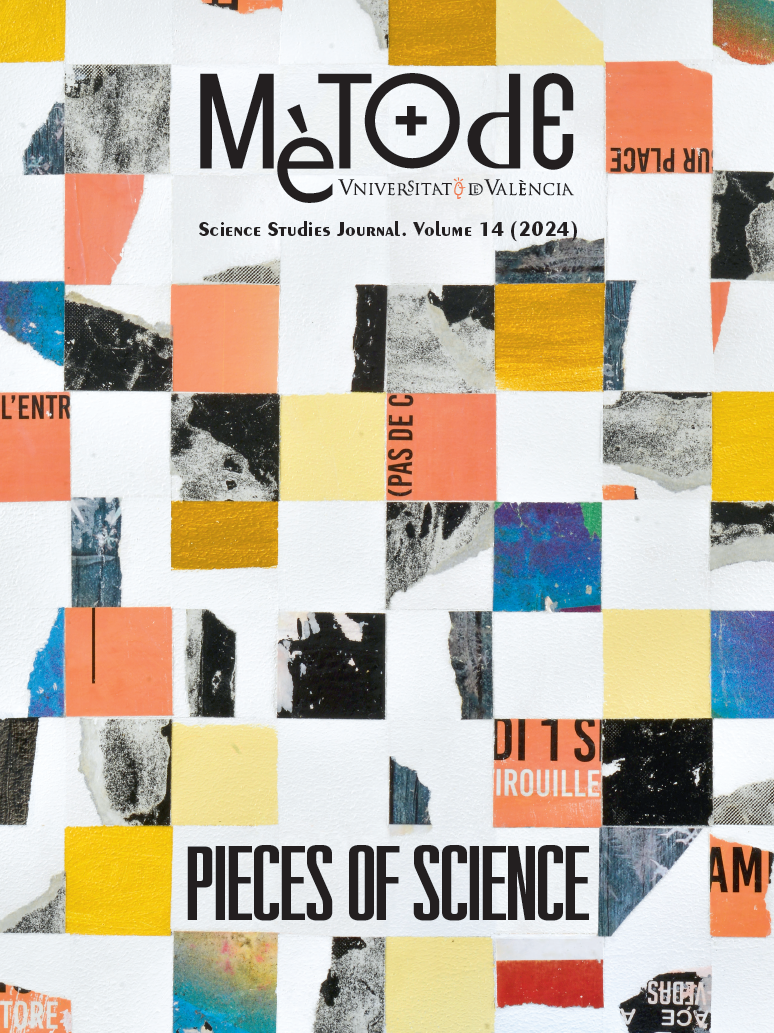Editorial
DOI:
https://doi.org/10.7203/metode.14.28242 Abstract
Abstract
Behind every scientific advance, behind every discovery, but also behind every mistake and every unproven hypothesis... behind science, in short, there are stories to be told. Indeed, as one of the monographs in this volume points out: «Evidence is accumulating that storytelling can be one of the most effective means for communicating sciences». In Metode Science Studies Journal, we give researchers a voice to tell their own stories, or the stories behind their research. How fossil remains from the past are discovered and what they mean to the region where they are found; how images accompany, document, and help to disseminate science; how we learn more about our primate relatives; and how we present the story behind the science to the general public. Four monographs, with the collaboration of leading experts and researchers in their respective fields, that offer us fragments, pieces of science, so necessary to understand today’s world and its challenges. At a time when reason is losing ground to populism and it is often difficult to distinguish reliable signals from the noise of disinformation, scientific journals are more necessary than ever. Perhaps the clearest example of this is the implementation of artificial intelligence in our daily lives. We watch the progress of this technology with a mixture of wonder and hope, but also uncertainty and suspicion. This is why it is important to analyse the applications of the technology, as Professor Massimiano Bucchi points out in the article that opens this volume, and to provide the reader with a context for the current situation. And to understand it, science from a multidisciplinary point of view is more necessary than ever. How can we explain the applications of artificial intelligence without analysing its impact on society, culture, and work? How can we discuss climate change without including a geopolitical and economic analysis? And above all, how can we understand reality without science?
 Downloads
Downloads
Downloads
Published
How to Cite
-
Abstract247
-
PDF164
Issue
Section
License
![]()
All the documents in the OJS platform are open access and property of their respective authors.
Authors publishing in the journal agree to the following terms:
- Authors keep the rights and guarantee Metode Science Studies Journal the right to be the first publication of the document, licensed under a Creative Commons Attribution-NonCommercial-NoDerivatives 4.0 International License that allows others to share the work with an acknowledgement of authorship and publication in the journal.
- Authors are allowed and encouraged to spread their work through electronic means using personal or institutional websites (institutional open archives, personal websites or professional and academic networks profiles) once the text has been published.





